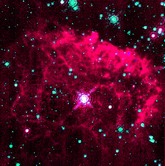There’s been quite a bit of moaning and groaning in the SF world that the SF short story is dead, supported by the fact that SF magazine subscription and newsstand sales have been falling, falling, falling… While the decline in sales figures are very real (as an example, Analog had sales over 100,000 copies in 1984, it now sports just about 30,000 in sales), does it really indicate a decline in readership for short SF, or is it merely an indicator of something else?
Once upon a time, I used to subscribe to all the SF mags: Galaxy, If, Worlds of Tomorrow, Analog, F&SF, Amazing, Fantastic, etc. When these issues arrived, they got devoured in short order. How did I get started on these things? By seeing them on the magazine racks and checkout counters at just about every grocery and convenience store, where their often garish (and often much maligned) covers really stood out from the rest of the material on those same racks. Which indicates the first point: people won’t get involved with these mags unless they know they are there, that they are positioned and designed to attract the casual browser. How long has it been since I’ve seen one of these mags at such places? Years. Distribution and display space is certainly one item that is causing the decline in their readership. What would it take to attract the casual reader today? In lieu of suddenly being able to place the magazines everywhere due to some miracle change in distribution methods, perhaps something like a YouTube presence or ads placed on Amazon or some of the most popular blogs – not cheap, but somehow these mags have to make their presence known.
How many SF mags do I subscribe to today? Zero. Why? Almost all my current SF reading today is novels, with only a rare (and usually single-author) anthology in the mix. The reason for this is something that Analog’s AnLab highlighted a long time ago, namely that longer pieces are typically more popular due to the fact that there is room to fully develop characters and environments. The SF short story is an extremely difficult form to do well, due to the inherent needs of SF to build entire worlds that the mainstream story can just take as background givens. In testament to this, I can rattle off literally a hundred excellent and highly memorable SF novels, stories that I can remember quite clearly even though I read them forty years ago, but I would be hard pressed to name more than 10 short stories that have had a similar impact. The difficulty in writing a great sf short story also leads to one of the complaints I hear today, that these stories keep treading the same old ground and the only people reading them are a graying and declining in numbers group of people. I don’t really agree with this; a look at the Hugo nominees in short fiction categories shows there’s still vitality here, but as has always been true, memorable short stories are a rarer beast than memorable novel-length ones.
Although having the SF mags run serials was always controversial with some segments of their readership, they were often a great draw to go get the next issue, and at one time the best novels were being initially published this way (Herbert’s Dune, for example). My impression is that there have been fewer serials receiving a Hugo nod in the last ten years or so, which may be due to several factors: limited space in only a few mags, more available ways for authors to market/publish the books from self-publishing to online distribution, more traditional publishers accepting first-novel works without prior magazine exposure, etc. Here is one area where online publication can help, as there aren’t any space/page limitations to be worked around to fit a novel into the magazine, which was (is) one of the constant objections the print magazines see from readers to serials, as they just take up too much space and crowd out a larger number of shorter works.
Which brings up the cost issue. The mag’s prices today are nearly equal to what you pay for a full paperback book. And the price needs to be that high to pay the authors, editors, illustrators, and printing costs. Online publication, instead of the dead-tree format, at least eliminates the printing costs, and allows for more flexible pricing/bundling – the online music model of price per song/story or price per album/entire magazine might make sense here. To make this work, though, would require probably several years of investment to grow the online version and get current readers of the hardcopy format to switch over.
There are new models appearing. Tor.com is one such, kind of a cross between a blog and an online magazine type format, with lots of comments, articles, and even artwork, with the occasional short story, and just recently, a serial novel. Quite noticeable is that its scope is much broader than traditional SF mags, including things like comics, anime, SF convention news, and links to other sites and happenings in the SF world, along with its own sales cart for books and such that are offered by Tor and related companies. Also noticeable is that the site has something new every day, something the print mags simply can’t do, and this may be key in keeping readership in the wide world of the internet – day old news is just so not there. I haven’t seen any readership or page hit counts for this site, but just from the sheer number of comments it gets on a daily basis indicates it has a fair following. So far, I haven’t seen any advertising from anyone outside of Tor itself, nor do they charge anything for access to the site. Which brings to fore the question of how financially viable this model is for anyone else that doesn’t have the deep pockets of a major book publisher to sustain them. Still, it, along with several other online SF magazines, shows that the market for short SF fiction still exists, there are still readers of this type of material. The fact that there are quite a few of these online mags, many started within the last few years, may in fact be a contributing factor in the decline of the print magazine, as more and more people get their SF fix from their computer, not the newsstand rack.
I’m afraid that the SF print-format magazine really is a dying animal, with almost no hope of saving it in that format. If these publications wish to survive at all, they really must embrace the web, and not in just a trivial manner. But the SF short story is not. Actually, there may be more short pieces appearing today that anytime earlier, but the market is far more fragmented. It used to be that probably 90% of all short SF was published initially in the print mags. I doubt if that figure today is more than 30%.


